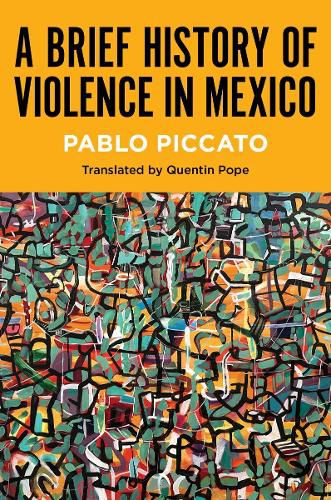Readings Newsletter
Become a Readings Member to make your shopping experience even easier.
Sign in or sign up for free!
You’re not far away from qualifying for FREE standard shipping within Australia
You’ve qualified for FREE standard shipping within Australia
The cart is loading…






Political rhetoric often portrays Mexico as an inherently violent nation. Available now for the first time in English, Pablo Piccato's essential work cuts through the noise to contextualize violence as a historical phenomenon. Piccato shows us that violence is not unique to Mexico but, just as anywhere else, has erupted there in many forms. Attending to multiple histories of violence, Piccato reveals how violence emerges as a resource that people mobilize to various ends-not an uncontrollable impulse or the simple result of corrupt political power.
Traversing the twentieth century through the lens of violence, Piccato interprets and draws connections between violence arising from revolution, agrarian and religious struggles, guerrilla and counterinsurgency movements, and common crime, all without losing sight of the distinct contexts and social dynamics of each. Gender violence, he argues, surfaces as a common thread, shaping all other forms of violence. Piccato brings to light how guerrillas, the military, politicians, and common criminals rationalized violence to fit their goals, ideologies, and values. In an unflinching analysis that contends that violence is not an essential trait of Mexican society, Piccato presents a new paradigm for understanding violence and illustrates that we are not powerless against it.
$9.00 standard shipping within Australia
FREE standard shipping within Australia for orders over $100.00
Express & International shipping calculated at checkout
Political rhetoric often portrays Mexico as an inherently violent nation. Available now for the first time in English, Pablo Piccato's essential work cuts through the noise to contextualize violence as a historical phenomenon. Piccato shows us that violence is not unique to Mexico but, just as anywhere else, has erupted there in many forms. Attending to multiple histories of violence, Piccato reveals how violence emerges as a resource that people mobilize to various ends-not an uncontrollable impulse or the simple result of corrupt political power.
Traversing the twentieth century through the lens of violence, Piccato interprets and draws connections between violence arising from revolution, agrarian and religious struggles, guerrilla and counterinsurgency movements, and common crime, all without losing sight of the distinct contexts and social dynamics of each. Gender violence, he argues, surfaces as a common thread, shaping all other forms of violence. Piccato brings to light how guerrillas, the military, politicians, and common criminals rationalized violence to fit their goals, ideologies, and values. In an unflinching analysis that contends that violence is not an essential trait of Mexican society, Piccato presents a new paradigm for understanding violence and illustrates that we are not powerless against it.